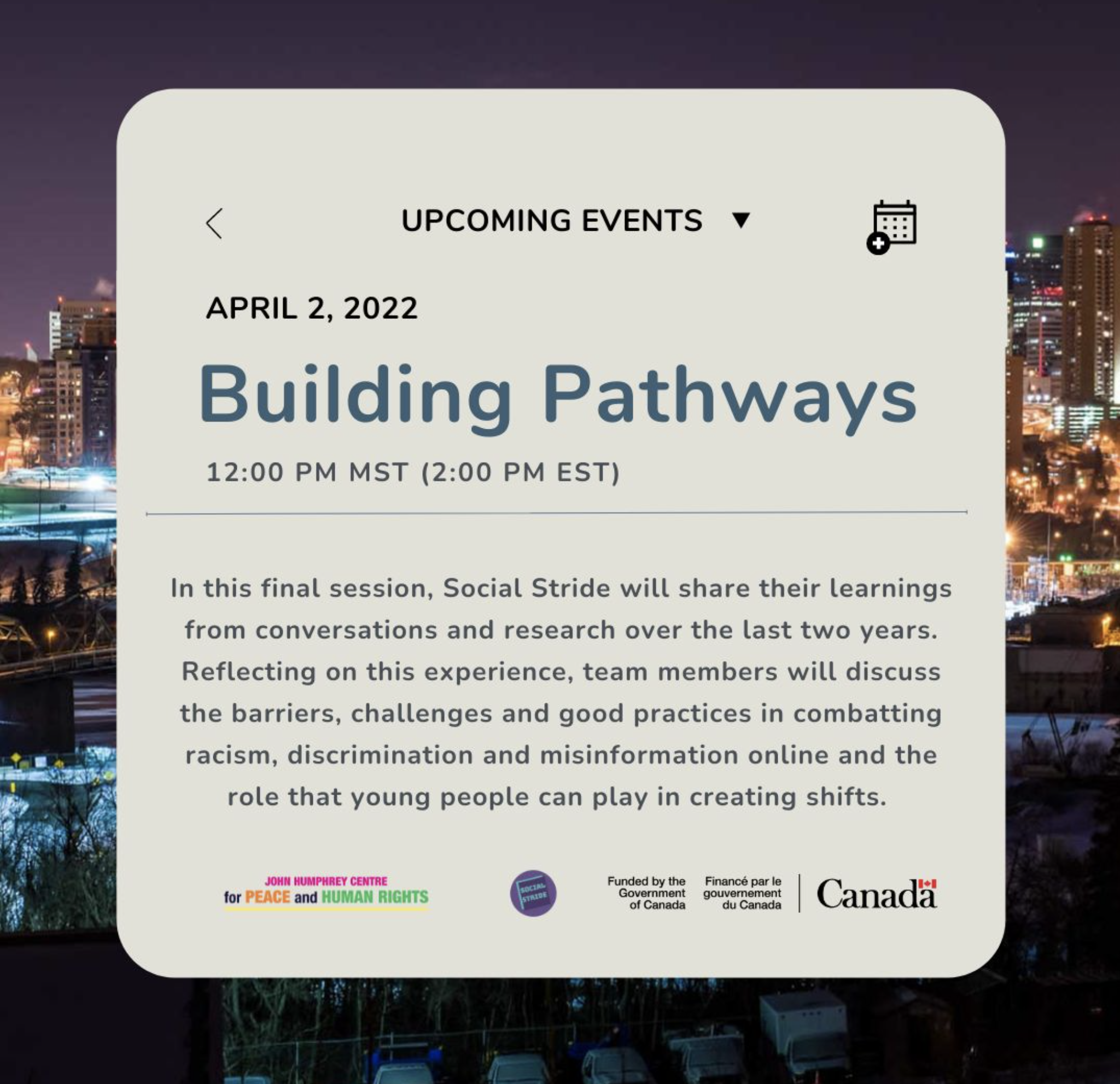Who protects young people from Online Hate in Canada?
MEDIA RELEASE
Youth might have the answer; community engagement is needed and their rights must be protected.
Edmonton (March 30, 2022) - Social Stride, an initiative led by youth will present their research findings and share their experiences addressing hate and discrimination online The public event will take place online on April 02, 2020. Social Stride’s vision is to create a healthier online environment by modeling peace and dignity. Using social media, the team of youth addressed hate and discrimination by providing education, countering misinformation and supporting/amplifying the voices of victims.
As bad as it sounds, there are no concrete laws that define and set out what online hate is. So, this ends up causing a lot of confusion on how to prosecute and pursue remedies for victims of online hate. The appropriateness of applying the current legislation from offline hatred to online hatred is debatable. The main question is who protects our youth when facing online hate? Parveen Parmar.
It wasn’t until 2019 that Statistics Canada revealed data on hate crimes committed online. The data captured corresponds to 364 police reported cyber hate crimes in Canada between 2010 and 2017. The number is really small, considering the time frame, which shows that a lot of people are not reporting their cases. Again, how do they know what to report if Canadian Laws don’t have a concrete definition for it; how do we as a community combat this issue? Last year, the Social Stride team managed more than 40 cases.
“Community engagement is a key essential component of building a sustainable and effective strategy preventing online hate. Not racist experts, but based on lived experiences and information that might give allies power, confidence and comfort to articulate some personal, online, contextual anti-racism language support. The information needs to be effective/accessible/trustworthy.” Roundtable panelist.
Social Stride started in Alberta in 2020 and has expanded to be a national project that actively engages volunteers from different provinces and territories, as well as Canadians of all ages who want to organize to address online hate through education, bystander intervention, and de-escalation strategies. The project did presentations in several schools and was supported by young anti-racism advocates , journalists, researchers and influencers to understand what is happening online and effective intervention and remediation strategies.
Social Stride provided support in dealing with online hate, bullying, harassment and discrimination through anti-oppression education and trauma-informed training. With online hate being a newer manifestation of hate, the team has put a lot of time into understanding how it looks, what harm is caused, and how we can combat it. All these learning have informed the ways the team has supported young people and they are eager to share those learnings with the public. One of the greatest challenges that the project faced is that it has been shadow banned on two of the major social media platforms, Instagram and Facebook. How is it possible to distribute educational information about online hate on social media if such platforms are censoring the content?
________________________________________________
The John Humphrey Centre for Peace and Human Rights works to advance dignity, freedom, justice, and security through collaborative relationships and transformative education on peace and human rights.
For additional information, contact:
Nexi Alarcon
nexi@jhcentre.org
780-289-3079
Deanne Vuzi
deanne@jhcentre.org

